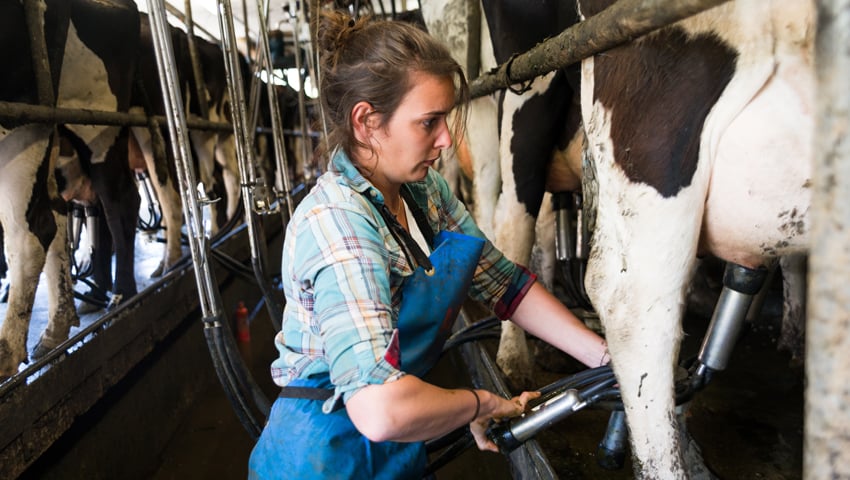New data highlights growing pressures in the food and farming sector due to shortages of available labour. More than half of Britain’s dairy farmers surveyed (56%) say it is harder than ever to recruit, whilst fully 86 per cent of farmers with vacancies say that they have had very few or no applicants with the right skills.
The survey has been carried out by the cooperative Arla Foods, the UK’s largest dairy company, amongst its farmer owners.
It finds that on average farmers are paying staff 27 per cent more than they were at the end of 2019, before the pandemic and the end of free movement of people from the EU. The pressure this is placing on the cost of food is clear. One-in-twelve farmers (8.5%) report that they are responding to these pressures by cutting production. Looking forward, 16 per cent of them say that without changes they will consider leaving farming altogether. These developments are putting the UK’s food security under pressure.
Key statistics:
- 56 per cent of farmers say they find it harder to recruit staff to work on farm now compared to 2019
- 8.5 per cent have reduced their output thanks to labour shortages, up from 5.5 per cent in 2023
- 10.6 per cent have had to cut their herd size, up from 9 per cent in 2023
- 16 per cent say they would consider leaving dairy altogether, up from 12 per cent in 2023
- 86 per cent of farmers trying to fill vacancies reported they have found that very few applicants or no applicants have had the right qualifications
Bas Padberg, managing director at Arla Foods, said, “Our farmers have told us for some time that they are facing real challenges with the state of the labour market. This new data bears out their concerns and the potential impact on food prices and food security.
“If we want our farmers to continue to put food on the table in millions of homes around the country they need help. We’re calling on the government and industry to work together to bring people into our exciting sector, and then to give them the skills and equipment they need to be fully productive. What ministers have said already about driving growth and supporting training is positive; we now need to go further and faster.”
Across the wider supply chain, the biggest challenges are attracting qualified people with the correct skillsets for the modern manufacturing environment, as well as attracting more women and younger people into the industry as a career choice. The advancement of technology, finding workers with expertise and experience of automation is also a growing issue.
Fran Ball, vice president of production at Arla, said, “The challenges in recruiting suitably skilled people into the food supply chain is becoming increasingly harder. With advancements in technology and automation, we should be getting more efficient, but we still need the right people with the right skills if we want to have a workforce that is fit for the future.”
Arla has already launched a clear strategy across its supply chain to attract, retain, develop and create more positive gender representation however, support is needed to help attract and promote food manufacturing as a career choice amongst a more diverse population.
Arla is now asking the government to expedite welcome changes to the Apprenticeship Levy to enable money to be used more easily for upskilling and training colleagues.
Reforms to careers advice in schools and to teaching more generally is also needed to encourage pupils to consider working in manufacturing, engineering and food.
David Christensen, an Arla Farmer, said, “For farmers across the country, this has been a problem for a number of years, and it is getting worse. We need schools, parents and careers advisors all to recognise the benefits of working in the food and farming sector and to share them with young people. Because in the end it is people who will deliver a thriving food and farming sector that feeds the nation and contributes to the growth of our economy.”
